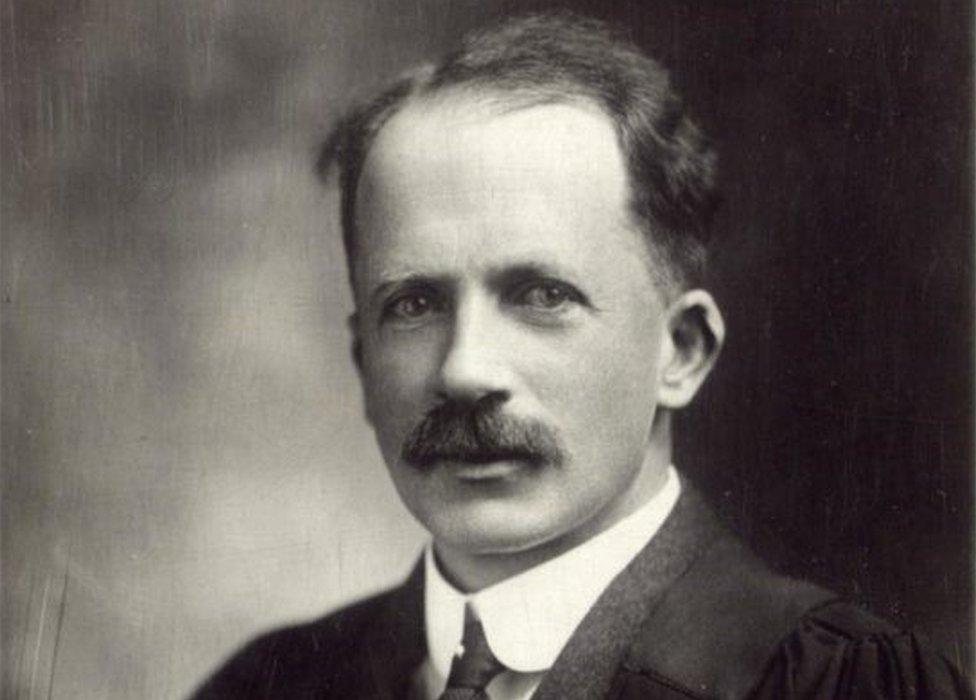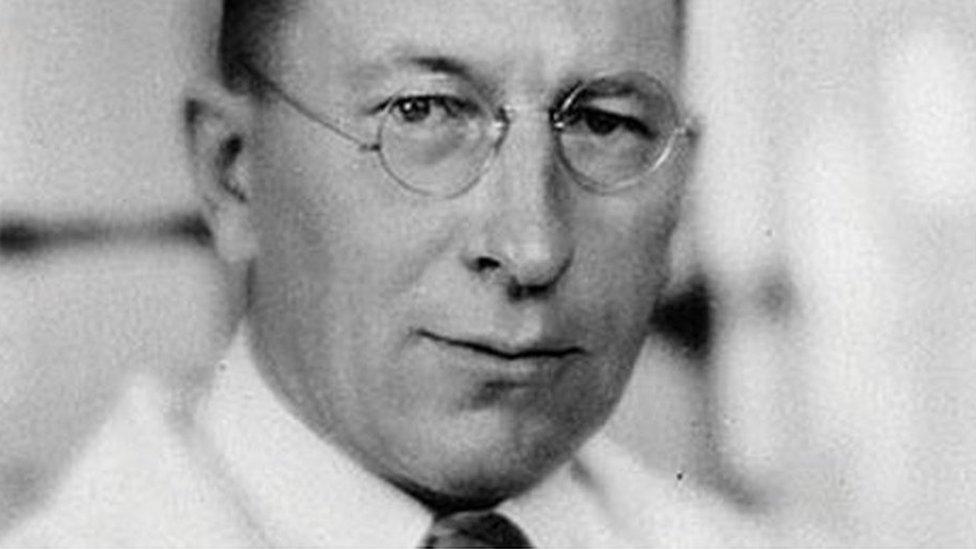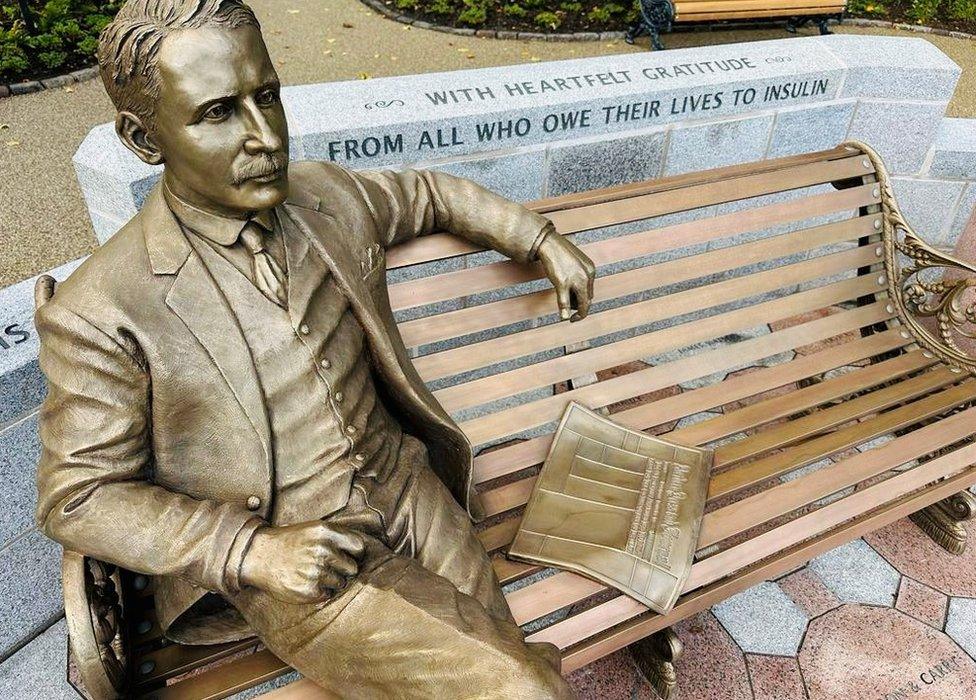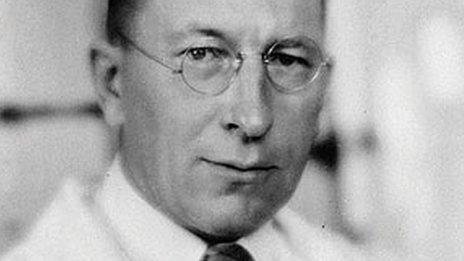The 'forgotten' Aberdeen-educated man who helped discover insulin
- Published

Prof JJR Macleod moved to Aberdeen when he was seven
One hundred years ago an Aberdeen scholar was given one of the highest honours in science for a breakthrough which transformed diabetes from a fatal condition to a manageable one.
Prof JJR Macleod was jointly awarded the Nobel Prize for Physiology or Medicine for helping discover insulin.
The hormone produced by the pancreas keeps blood glucose levels under control.
Prof Macleod has been described as an "unsung medical hero that history forgot".
John James Rickard Macleod was born in Perthshire in 1876 and moved to Aberdeen at the age of seven.
In the Granite City he was educated at Aberdeen Grammar School, and then studied medicine at the University of Aberdeen.
He went on to become a lecturer at the University of Toronto.
While in Canada he teamed up with young surgeon Frederick Banting.

Frederick Banting isolated an internal secretion of the pancreas
Banting isolated an internal secretion of the pancreas and succeeded in reducing blood sugar levels.
Working together and after trials the two men published their findings in 1922. Their breakthrough ultimately eased and prolonged the lives of diabetics.
The following year the two men shared the Nobel Prize honour.
Benchmark of his success
Prof Macleod returned to Scotland, and the University of Aberdeen, in 1928.
He died, aged 58, in 1935.
On Thursday afternoon, a statue in his honour was unveiled in Aberdeen's Duthie Park to mark 100 years since the prize was conferred.

The new statue is in Aberdeen's Duthie Park
The life-size bronze statue, sitting on granite, depicts Prof Macleod on a bench, with a newspaper at his side bearing a headline that refers to him receiving the honour.
Sculptor John McKenna spent more than a year working on the piece.
Well deserved
John Otto, the founder and chairman of the JJR Macleod Memorial Statue Society, said: "As someone who has been dependent on daily injections of insulin for the past 50 years, it has been a surreal but gratifying experience to watch this long-held dream become a reality.
"I feel a deep sense of gratitude to JJR Macleod for giving me life, along with millions of others around the world.
"As the unsung medical hero that history and the world forgot, JJR Macleod is truly a man who deserves a statue."
The event programme included Queen Camilla commenting: "This statue is a fitting tribute both to [Macleod's] achievements and to his deep connection to this beautiful city, and I am delighted that his momentous contribution to medicine is being publicly celebrated in this way".
Visitors to the statue can also scan a QR code, which triggers an app which plays a monologue and short documentary.
Meanwhile, the University of Aberdeen also unveiled a plaque in memory of Prof Macleod.
Related topics
- Published23 January 2012
